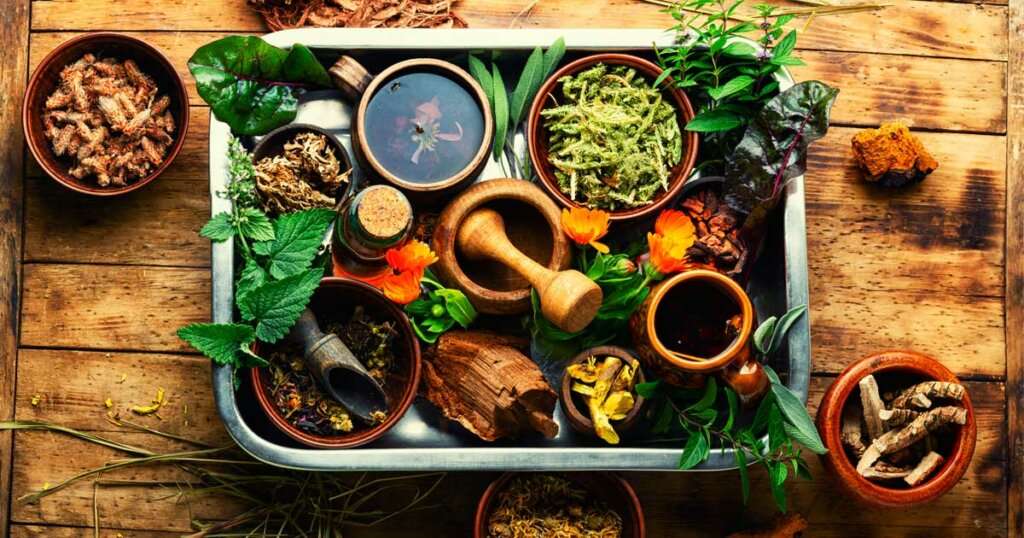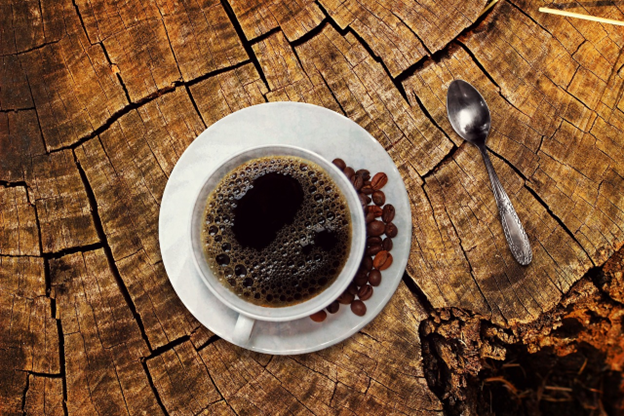High blood pressure, or hypertension, is a prevalent health concern that affects millions of people worldwide. Left untreated, it can lead to serious health issues such as heart disease, stroke, and kidney problems. While medication and lifestyle changes are commonly recommended for managing high blood pressure, there is growing interest in herbal remedies as a complementary approach.
In this article, we’ll explore 11 herbs to lower high blood pressure and provide you with valuable insights into their potential benefits.
Understanding High Blood Pressure
Before we delve into the world of herbs that lower high blood pressure, it’s crucial to understand exactly what high blood pressure is. Blood pressure is the force of blood against the walls of your arteries, and it is typically measured in millimetres of mercury (mmHg). High blood pressure occurs when this force is consistently too high, putting extra strain on your heart and blood vessels.
The herbs we are about to discuss have been studied for their potential to lower blood pressure naturally. However, it’s important to note that herbal treatments should not replace prescribed medications without consulting a healthcare professional.
Garlic: Nature’s Blood Pressure Ally
Garlic, often referred to as the “stinking rose,” and has been cherished for its culinary and medicinal properties for centuries. Research suggests that garlic contains compounds that help relax blood vessels, potentially lowering blood pressure. Allicin, a key component in garlic, is thought to be responsible for its beneficial effect. Thus making garlic a powerful herb to reduce blood pressure
To incorporate garlic into your diet, consider adding it to your favourite dishes or taking garlic supplements. However, remember that it’s always a good idea to consult your healthcare provider before significantly increasing your garlic intake, especially if you are taking blood-thinning medications.
Hawthorn: The Heart-Healthy Herb
Hawthorn is one of the best herbs for blood pressure and has a long history of use in traditional medicine, particularly for heart-related issues. It is believed that hawthorn can help improve blood circulation and dilate blood vessels, leading to lower blood pressure. Some studies have shown promising results in using hawthorn extract as a herbal treatment for high blood pressure.
You can find hawthorn supplements in various forms, including capsules, tinctures, and teas. As with any herbal treatment, consult your doctor to determine the appropriate dosage and potential interactions with other medications.
Hibiscus: The Beautiful Blood Pressure Regulator
Hibiscus tea, made from the dried petals of the hibiscus flower, is a delightful and vibrant herbal remedy. Beyond its pleasant taste, hibiscus tea has gained attention for its potential to lower high blood pressure. This effect may be due to the fact that it contains natural flavonoids, beta-carotene, tannins, Vitamin C, and ability to act as a natural diuretic.
So brew yourself a cup of hibiscus tea regularly to enjoy its potential blood pressure benefits. However, be cautious if you are already taking medications for hypertension, as hibiscus could amplify their effects.
Olive Leaf: A Mediterranean Marvel
The Mediterranean diet is celebrated for its heart-healthy components, and olive oil often takes the spotlight. However, olive leaves also offer potential benefits for blood pressure control. Olive leaf extract contains compounds known as oleuropein and hydroxytyrosol, which can help relax blood vessels and reduce blood pressure.
Consider incorporating olive leaf extract into your daily routine by using it as a herbal supplement for blood pressure or enjoying a cup of olive leaf tea. As always, make sure to consult your doctor for personalised guidance depending on your health and medication.
Celery Seed: A Tiny Spice with Big Potential
Celery seed, often overlooked in the spice rack, holds the potential to lower high blood pressure. It contains compounds called phthalides, which are believed to relax the muscles in the arteries, leading to improved blood flow and lower blood pressure.
You can easily incorporate celery seed into your diet by sprinkling it on salads, and soups, or adding it to your spice blends. As with any herbs to lower blood pressure, consult your healthcare provider for recommendations on safe usage.
Cinnamon: Spice Up Your Blood Pressure Control
Cinnamon, a beloved spice in kitchens worldwide, can offer more than just a delightful flavour. Some studies suggest that cinnamon is also a herb to lower blood pressure as is helps to regulate blood pressure by improving blood vessel function and reducing inflammation.
To enjoy the potential benefits of cinnamon, sprinkle it on your morning oatmeal, mix it into your coffee, or add it to your favourite smoothie. However, be mindful of the type and quality of cinnamon you use, as the benefits may vary.
Lavender: Aromatic Relaxation
Lavender is often associated with relaxation and stress relief, but it can also play a role in blood pressure management. The calming aroma of lavender has been linked to reduced stress and anxiety, both of which can contribute to lower blood pressure.
You can experience the soothing effects of lavender by using lavender essential oil in aromatherapy, enjoying lavender tea, or incorporating fresh lavender into your culinary creations. While it may not directly lower blood pressure, reducing stress can be a valuable part of hypertension management.
Cat’s Claw: The Amazonian Wonder
Cat’s claw also called Uncaria tomentosa, a vine native to the Amazon rainforest, has been used in traditional medicine for its potential health benefits. Research suggests that the cat’s claw can help dilate blood vessels, which could lead to reduced blood pressure. Additionally, it is believed to have antioxidant properties that support overall cardiovascular health. Cat’s claw supplements are available in various forms, including capsules and tinctures.
Cardamom: The Spice of Life
Cardamom, a fragrant spice commonly used in Indian cuisine, can have blood pressure-lowering properties. Some studies have indicated that cardamom can help relax blood vessels and improve blood circulation by acting as a natural calcium channel blocker. It’s a flavorful addition to both sweet and savoury dishes.
Including cardamom in your cooking is a delicious way to potentially support your blood pressure. However, moderation is key, as excessive consumption may lead to adverse effects.
French Maritime Pine Bark: A Natural Antioxidant
French Maritime Pine Bark extract, often referred to as Pycnogenol, is known for its potent antioxidant properties. Research suggests that it can help lower blood pressure by improving blood vessel function and reducing oxidative stress.
You can find French Maritime Pine Bark supplements in health food stores. Consult your doctor to determine the appropriate dosage for your specific medical needs.
Beetroot: The Vibrant Veggie
Beetroot, with its rich, deep colour, is not only a feast for the eyes but also potentially beneficial for blood pressure. It contains nitrates, which the body can convert into nitric oxide, a compound that relaxes blood vessels and improves blood flow.
Incorporate beetroot into your diet by enjoying it in salads, juices, or as a side dish. However, be mindful of its natural sugar content, especially if you have diabetes.
In a Nutshell
Incorporating herbs into your diet as part of a holistic approach to managing high blood pressure is a promising avenue to explore. While these herbs can offer potential benefits, it’s crucial to remember that they are not a replacement for prescribed medications. Always consult with your healthcare provider before adding herbal supplements to your routine, especially if you are currently taking medication for high blood pressure or more medical conditions.
To get in touch with a doctor near you and discuss the incorporation of herbs or any other aspect of your high blood pressure management,, you can also visit Bp in Control’s Find a Physician page. Remember, your health is a partnership between you and your healthcare team, and together, you can work towards achieving and maintaining optimal blood pressure levels.
Disclaimer
The information contained in this article is to educate, spread awareness in relation to hypertension and other diseases to the public at large. The contents of this article are created and developed by BPinControl.in through its authors, which has necessary, authorisations, license, approvals, permits etc to allow usage of this articles on The Website. The views and opinions expressed in this article are views, opinions of the respective authors and are independently endorsed by doctors. Although great care has been taken in compiling and checking the information in this article, The Website shall not be responsible, or in any way liable for any errors, omissions or inaccuracies in this article whether arising from negligence or otherwise, or for any consequences arising therefrom. The content of this article is not a substitute for any medical advice. The Website shall not be held responsible or liable for any consequence arising out of reliance on the information provided in the article.




